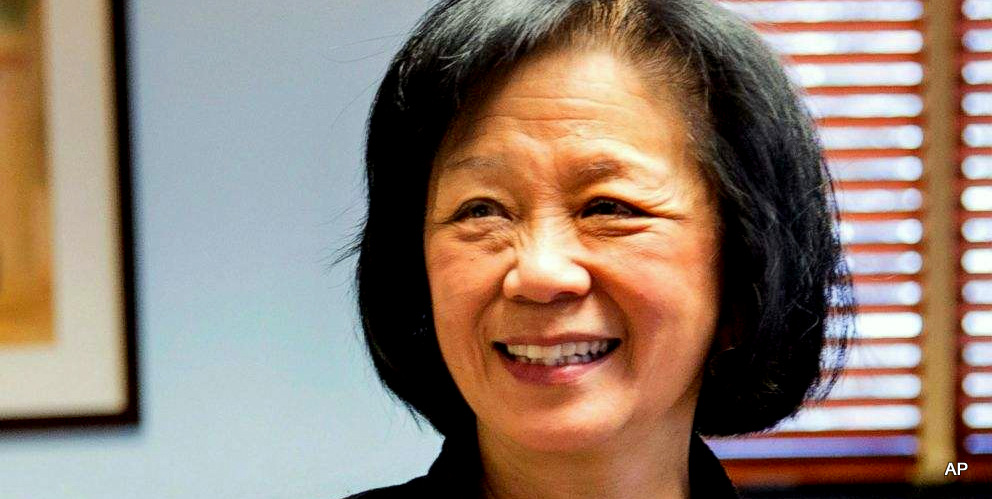The university continues to face major backlash for terminating a
tenured professor over Twitter posts he made which were critical of
Israel.

Phyllis
M. Wise resigned as chancellor of University of Illinois at
Urbana-Champaign in the wake of a judge’s decision to continue a freedom
of speech suit against the university.
The chancellor of the University of Illinois at Urbana-Champaign (UIUC), who was involved in firing Professor Steven Salaita over tweets he sent about Israel’s 2014 assault on Gaza, has announced her resignation yesterday. The announcement comes as a federal judge refused to dismiss Salaita’s lawsuit against the university for violating his free speech.
Chancellor Phyllis M. Wise cited “external issues,” which have “arisen over the past year” and “distracted” the university from “important tasks at hand,” as reason for leaving the chancellor’s position. By “external issues,” Wise was referring to a major backlash against the university for improperly terminating Salaita when he had a tenured position with the university.
Salaita sued the university in September for allegedly violating his First Amendment free speech rights, depriving him of “procedural due process rights,” conspiring to deprive him of his job, breaching his contract, interfering with Salaita’s contractual and business relations, and intentionally inflicting emotional distress on him.
He also filed a claim against Wise for destroying a two-page memo containing evidence on why he was fired.
UIUC hired Salaita to teach two courses in the American Indian Studies Department as an associate professor. He signed a document accepting the position on October 9, 2013, and UIUC assigned him to courses for the 2014 fall semester, assigned him to an office, and gave him a university email address. Salaita resigned from his job at Virginia Tech and started to move his family to Illinois.
About this time, Israel intensified a military operation against Gaza. Salaita angrily reacted to what was unfolding, and, initially, the university defended Salaita as his tweets received media attention. The university touted a policy of recognizing “freedom-of-speech rights of all” employees.
Wise subsequently met with two donors, including someone “particularly wealthy,” who threatened to withhold financial support for the university if Salaita was not fired. She destroyed a memo about one of the donor meetings. The other meeting took place on August 1, which was the same day Wise announced the university would no longer “appoint” Salaita to a faculty position (even though he had already been hired).
Judge Henry Leinenweber of the US District Court for the Northern District of Illinois found Salaita had alleged facts, which show he was “fired or not hired because of the university’s disagreement with his personal speech in a public forum on a matter of public concern.” [PDF]
Salaita also sufficiently alleged a “breach of contract” claim and a violation of due process. He alleged enough evidence to make a claim that the university had engaged in a conspiracy too.

“Taking the facts in the complaint as true, [the university’s] actions were far from routine — they were unprecedented,” Leinenweber declared. “At a minimum, the University’s conduct here was not routine in relation to the other professors who were all appointed summarily and without individual consideration.”
The lawsuit alleges, “Never before has the Board or University singled out a professor for similar treatment in response to extramural speech on a matter of public concern. The only difference between Dr. Salaita and the other 120 professors, who were treated differently, appears to be Dr. Salaita’s tweets. This increases the plausibility of Dr. Salaita’s conspiracy claim generally and his specific claim that he was being punished for his speech.”
However, the court dismissed other claims against the university, including the claim of intentionally inflicted emotional distress and the claim related to Wise’s destruction of the two-page memo.
Center for Constitutional Rights Deputy Legal Director Maria Lahood, who has represented Salaita, reacted, “The court’s ruling clears the way for Professor Salaita to seek redress for the wrongs done by the university, including violating his right to speak freely on issues of public concern without being fired.”
Another attorney representing Salaita, Anand Swaminathan of Loevy & Loevy, stated, “The university’s administration took a number of positions that showed contempt for its constitutional obligations, and raise serious doubts about the university’s commitment to academic freedom and its willingness to honor contractual commitments to its scholars. We are extremely pleased that the court has rejected the university’s dubious arguments.”
In June, Salaita won a victory in Illinois state court when university officials were ordered in a Freedom of Information Act lawsuit to produce emails on his firing.
The American Association of University Professors (AAUP) also issued a report in April, which concluded Salaita had his academic freedom and due process rights violated.
“The stated reasons for the rejection of the Salaita appointment by the chancellor and the board of trustees violated Professor Salaita’s academic freedom and have cast a pall of uncertainty over the degree to which academic freedom is understood and respected,” AAUP concluded. “The chancellor’s decision to oppose the appointment—announced without first having revealed her intention to those at several previous levels of evaluation, all of whom had recommended making the appointment—contravened widely accepted standards for the conduct of academic governance.”
An academic boycott against the university has grown in the past year with scholars refusing to participate in events on the UIUC campus. In one particular case, a Holocaust scholar canceled his lecture at the university.
Since being fired, Salaita was hired as the Edward W. Said Chair of American Studies at the American University of Beirut for the 2015-16 academic year. Haymarket Books is also publishing a book by Salaita called “Uncivil Rites: Palestine and the Limits of Academic Freedom” in October.
Read more: http://www.mintpressnews.com/the-fallout-over-university-of-illinois-censorship-of-war-on-gaza-continues/208473/

No comments:
Post a Comment